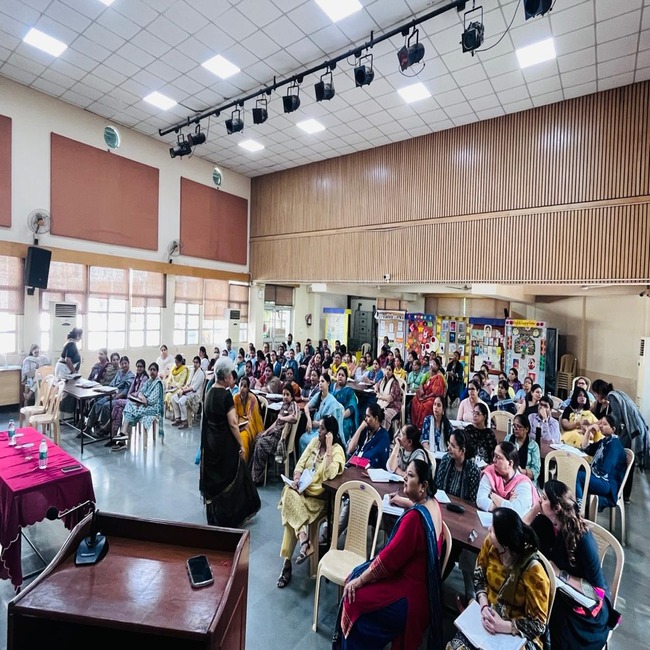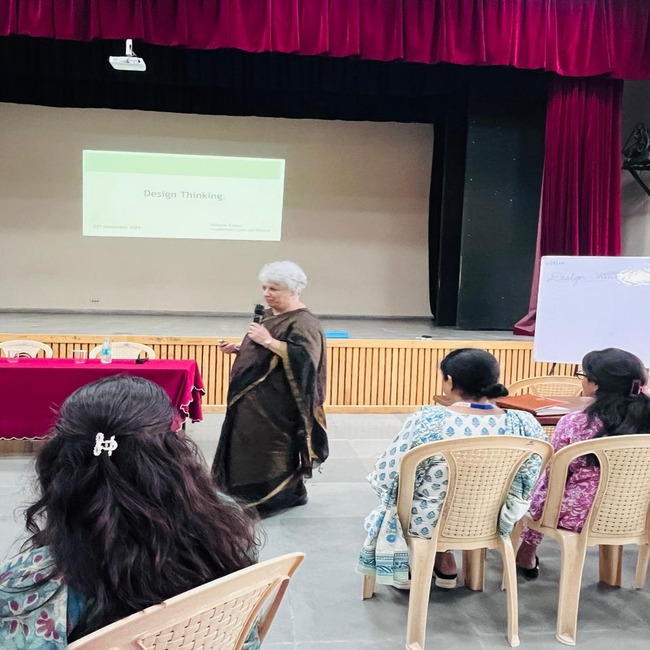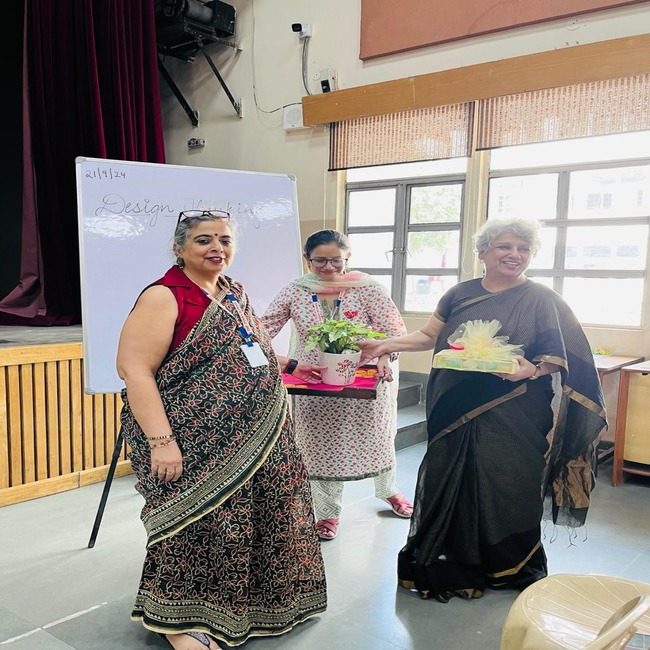Teacher workshop on Design Thinking
On 21st September 2024, a workshop on Design Thinking was held at School for all our teachers. It was led by Ms Kalpana Kapoor, certified leadership coach. Ms Kapoor, deeply involved in promoting the National Education Policy (NEP), works on School Quality Assessments (SQAFF) with CBSE and mentors/ school leaders. The workshop introduced Design Thinking as a human-centred approach to solving educational challenges, emphasising empathy, collaboration, and iteration.
The key takeaways included the stages of experiential learning and Kolb’s Experiential Learning Model, which promote active engagement through experience, reflection, and application. Participants learned about the importance of building scientific temperament, fostering gender sensitivity, and developing essential soft skills through FLIPS (Flexibility, Lead, Initiative, Productive, Social Skills). The concept of navigating the VUCA (Volatile, Uncertain, Complex, Ambiguous) world was explored, highlighting the difference between Design Thinking and traditional problem-solving. The steps of Design Thinking—empathise, define, ideate, prototype, test, and implement—were introduced alongside the stages of understanding, exploring, and materialising ideas. Practical applications included a STEM project on building a bridge, showcasing how design thinking can address real-world challenges.
The workshop also discussed integrating Design Thinking into lesson plans and featured inspirational videos, such as “300 Colours” and “Christmas Tree.” The concept of language writing skills was addressed, emphasising a clear purpose in lesson creation and debating. Overcoming biases and using tools like mind maps in subjects such as EVS, Social Science, and Science were also covered. A creative activity involving the creation of cuisines highlighted collaborative learning.
Teachers were encouraged to review, reflect, respond, and rate their teaching practices while looking for interconnectedness across subjects. The workshop also stressed the importance of incorporating the United Nations' Sustainable Development Goals (SDGs) into the curriculum. The event concluded with a vote of thanks, leaving participants with actionable strategies to foster a design-thinking mindset in education.















